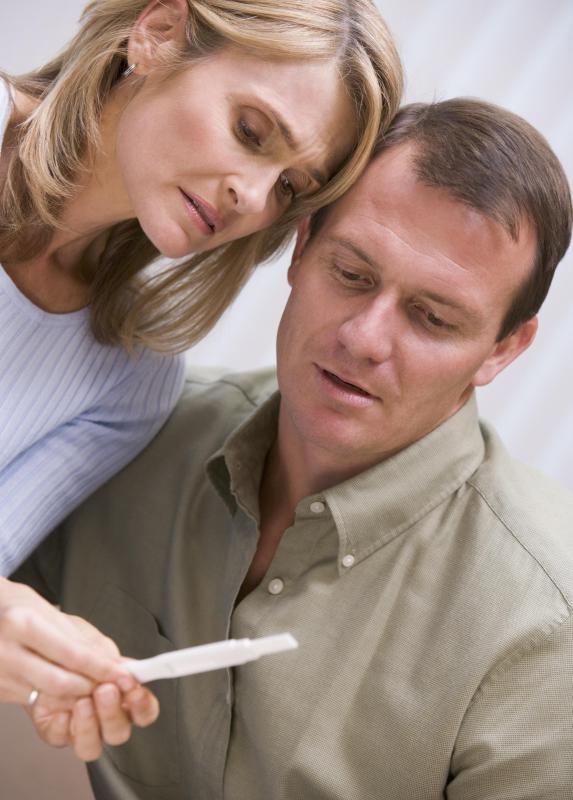At PracticalAdultInsights, we're committed to delivering accurate, trustworthy information. Our expert-authored content is rigorously fact-checked and sourced from credible authorities. Discover how we uphold the highest standards in providing you with reliable knowledge.
What is an Andrologist?
An andrologist is a medical doctor or licensed physician who provides diagnostic and treatment services to men with reproductive health issues. These professionals help patients who have hormonal disorders, fertility issues, and erectile dysfunction, among other problems. They conduct physical examinations, prescribe medications, and suggest lifestyle changes to help patients overcome and manage their disorders and problems. Many andrologists also perform routine surgical procedures, including vasectomies.
Relationship to Urology

The practice and study of andrology is often considered a specialty area of urology. Many urologists offer consulting and limited treatment for male patients who have reproductive problems, though recurring issues and more complex problems are often best handled by a specially trained andrologist. A urologist with an andrology background will often have more experience with nuanced reproductive problems and be more up-to-date on possible cures.
Focus on Reproductive System Diseases and Disorders

The main focus of any andrologist is male reproductive health. He or she is usually considered an expert in impotence, low sperm counts, and prostate problems, and is often called upon to relieve pain and discomfort related to groin injuries or deformities.
Many patient problems, such as erectile dysfunction and many sexually transmitted diseases, can be treated effectively with medications. Issues like testicular torsion, undescended testes, infertility, and cancer may require more detailed treatment. Depending on regional restrictions and an andrologist's training, he or she may be able to offer surgical services when required. Some professionals are qualified to perform vasectomies, augmentations, and sex change operations, for example, many of which can be done on an outpatient basis. In vitro fertilizations may also come under this sort of professional’s expertise.
Importance of Compassion

Sexual and reproductive health issues are often very sensitive topics, which means that andrologists must usually have a strong bedside manner in order to find success and retain patients’ trust. Medical professionals within this specialty often struggle to find a balance between scientific honesty and compassion, and must usually be able to communicate well both with patients and their families. Many of the conditions that these professionals treat are long-lasting, and most treatments require trust as much as medical precision to be successful.
Importance of Research

Most andrologists conduct research and review the latest clinical findings of other doctors in the field when they are not treating patients to improve their understanding of the discipline. Some improvements come with experience, but many are the factor of intense study. The more advanced an andrologist becomes in the field, the more likely he or she is to publish original findings to enhance the larger body of knowledge.
Required Training and Education

A person who wants to become an andrologist usually needs to complete medical school, participate in at least four years of residency training, and pass local or national licensing exams. Most will enter urology residency programs following medical school graduation, but some pursue more general positions in internal medicine or surgery. In addition, many hospitals and specialty clinics offer a two-year fellowship program in andrology for professionals who successfully complete residency training. A fellowship is not required to become an andrologist in all countries, but a doctor can benefit greatly from the extra guidance and experience provided in this sort of specialty program.
After completing residency and fellowship training, candidates must usually take a written exam to earn board certification and the right to begin practicing independently. Most new andrologists begin their careers in clinics and joint urology practices. With experience, a professional may be able to open his or her own private practice or join a hospital team as a consultant.
AS FEATURED ON:
AS FEATURED ON:















Discussion Comments
But putting your toddler under the knife for something like this seems so extreme. Every major surgery has risks of course and we were really worried about him. The andrologist was really good about the whole thing, making sure the whole family knew what was going on, what the risks were and why we should do it anyway.
Apparently one of the biggest problems for kids like this is that the family overreacts and makes the little boy really self conscious, which leads to problems later on. Luckily the andrologist warned my sister and her husband about this and they were able to avoid the behavior.
@KoiwiGal - I don't think that any of the medical specialties is a piece of cake, including this one. After all, you aren't just performing vasectomies. You're also dealing with men who have had accidents to that region, who perhaps have major self identity crises, kids who have undescended testicles and so forth.
And there is also the fact that many men suffer from cancer of the prostate, which I imagine an andrologist has to deal with all the time. Since men don't tend to go to the doctor until it becomes an urgent problem (and may already be too late) this could also be an issue.
I actually think it might be one of the more difficult specialties just because men don't tend to go to the doctor and they might not be happy to volunteer personal information or anything that they think makes them look bad. I imagine some days it must feel like getting blood from a stone.
From what I understand a vasectomy isn't considered a major surgery so I assume most andrologists can perform it in their office.
A friend of a friend had one done and apparently it was done in the doctor's room, took about 30 minutes and afterwards he was able to go home within an hour.
He was all healed up within about a week or two. Compare that to the female equivalent surgery, which is considered a major surgery with general anesthesia.
I bet andrologists perform a few of these every day and don't even break a sweat. It seems like of all the different things you could specialize in, this would be the most interesting, and perhaps the easiest.
Post your comments